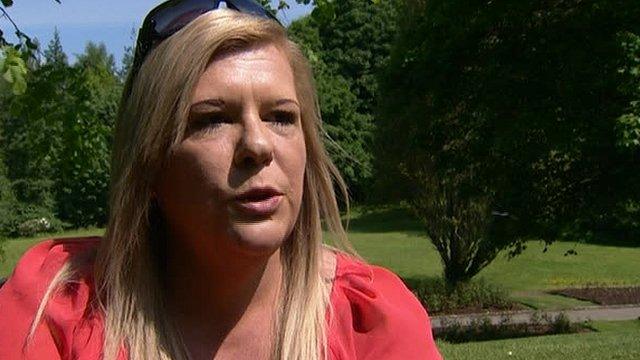NI criminal compensation law changed after abuse victim challenge
- Published
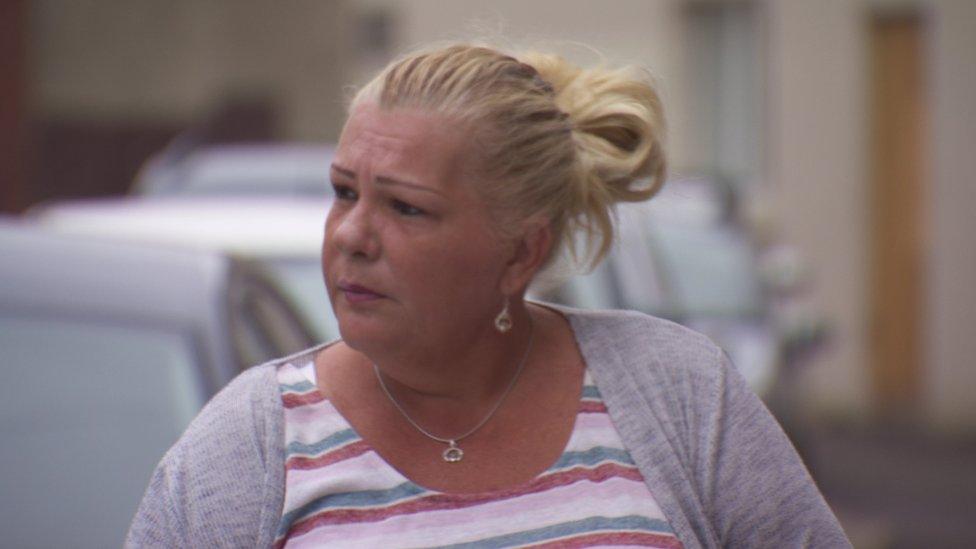
As a child, Mary Meehan was once locked in a dog-house for three days
The Department of Justice has announced it is changing the law after a woman who was abused as a girl by her stepmother won a legal battle over being refused criminal compensation.
A loophole meant that people abused between 1969 and 1988 did not qualify for compensation if they lived under the same roof as their abuser.
Mary Meehan was abused between the ages of nine and 11 by Breige Meehan.
Her abuser had married Ms Meehan's father, Martin Meehan, an IRA leader.
While Breige Meehan was convicted, Ms Meehan - who has waved her right to anonymity - had to go to court to win criminal compensation.
This is because the law meant she did not qualify because her abuser lived in the same household.
Now, Justice Minister Naomi Long has closed that loophole, a move welcomed by Ms Meehan.
"I am proud of myself because I know that I am going to help other people that suffered the exact same way that I suffered," she said.
"Now they will be able to stand up and people will be able to hear what they had to say, like I had to say.
"And that's one of the reasons why I fought the case so hard because it wasn't for myself, it was for other people that went through the same kind of abuse and trauma.
"It wasn't just myself who suffered, it was my kids who suffered, my family suffered - so I am proud that I am able to sit here today and say that I have changed the law."
Mary Meehan said she did not know if she would ever be able to feel normal
Ms Meehan won her case at the Appeal Court in 2018.
Judges ruled that a bar on her, and other abuse victims who lived in the same house as perpetrators, was not justified in law.
The same-household rule applied from 1 March 1969 to 30 June 1988 to all victims of abuse or a crime of violence inflicted by a family member living under the same roof.
The legislation was amended in 1988 but was not made retrospective for that 19-year period until now.
In 2013, Briege Meehan admitted child cruelty charges and received a suspended prison sentence.
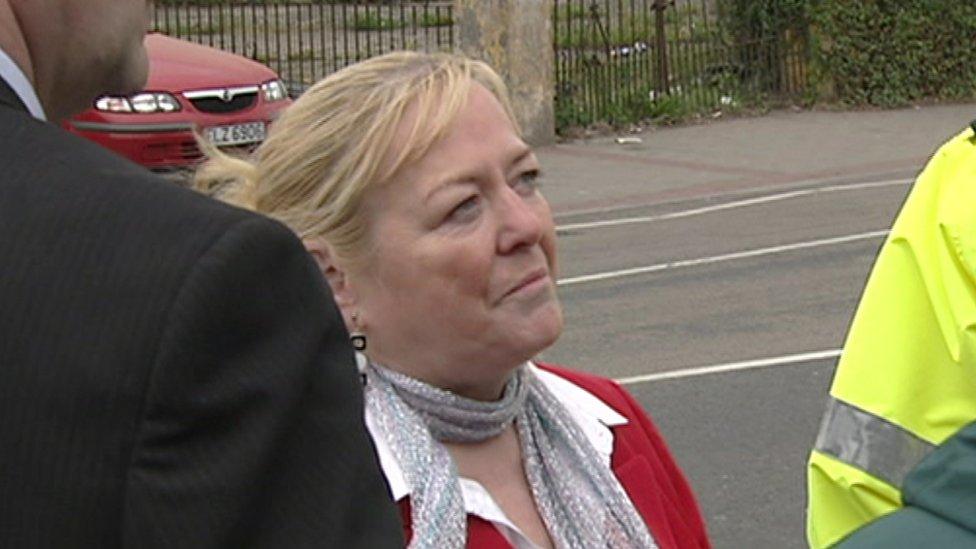
Briege Meehan was convicted of child cruelty against her stepdaughter
The offences occurred between July 1979 and October 1980.
When she caught nits in school, her stepmother cut her long blond hair with razor blades.
In another incident, Mary Meehan was locked outside in a dog-house for three days.
'Unimaginable hurt and pain'
The change in the law in Northern Ireland brings it into line with the rest of the UK.
Victim Support NI also welcomed the change to the compensation law.
"I am delighted that this discriminatory clause in the Northern Irish Criminal Injuries Compensation Scheme has finally been removed," said Geraldine Hanna, chief executive of Victim Support NI.
"It has caused unimaginable hurt and pain to victims of childhood abuse.
"Children do not have a choice over where they live - they cannot remove themselves from the home and live independently in order to escape the abuse.
"By remaining in the household they were not consenting to the abuse they experienced- they simply had no other choice," she added.
Ms Hanna thanked all those "who have long campaigned for this change, in particular the victims whose successful legal challenges in 2018 led to the abolition of this rule".
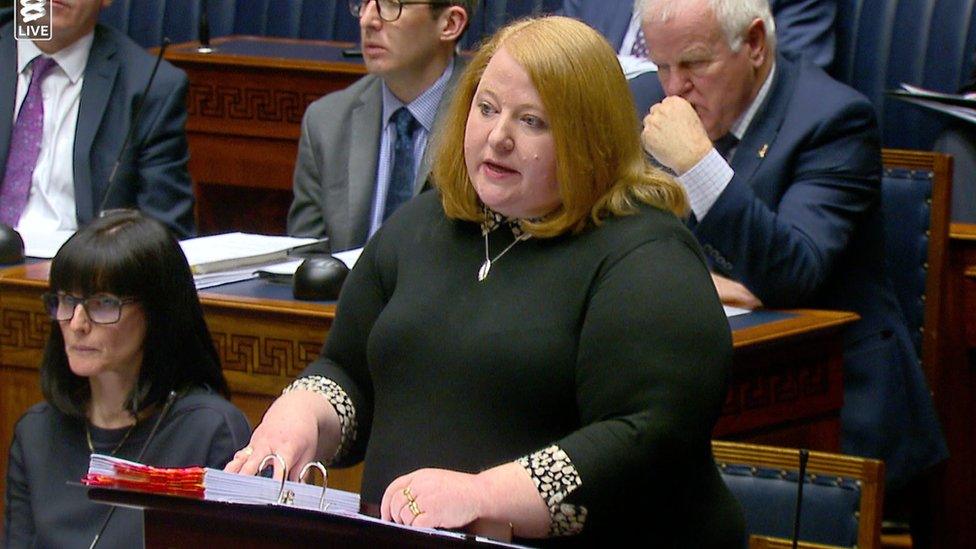
Justice Minister Naomi Long said the same household rule was "unfair" to victims
In a statement, the justice minster said: "The same household rule was unfair and I recognise the impact this had on all victims whose applications were refused simply because they lived with their attacker.
"Amending the same household provision will bring the Northern Ireland Criminal Injuries Scheme into line with the GB Scheme in relation to treatment of victims of same household abuse and allow more victims of crime to access compensation.
"The payment can never fully compensate for the injuries suffered, but it is recognition of the pain and suffering of victims who experienced abuse and violence perpetrated by members of their own household."
The Department of Justice said the removal of the same household rule from the Northern Ireland Criminal Injuries Scheme "ensures compliance" with the 2018 Court of Appeal ruling.
It added there is now a two-year time limit for victims affected by the pre-1988 same household rule to apply for compensation.
Further information on how to apply and who is eligible for criminal injuries compensation can be found on the NI Direct website., external
- Published5 July 2013
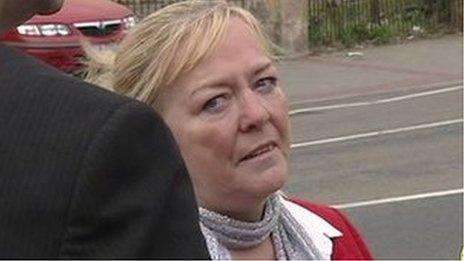
- Published5 June 2013
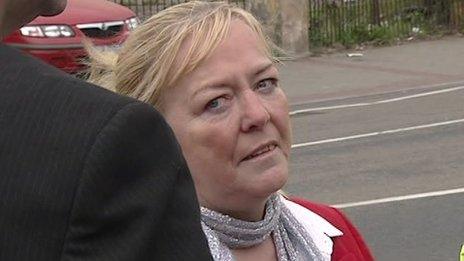
- Published6 June 2013
